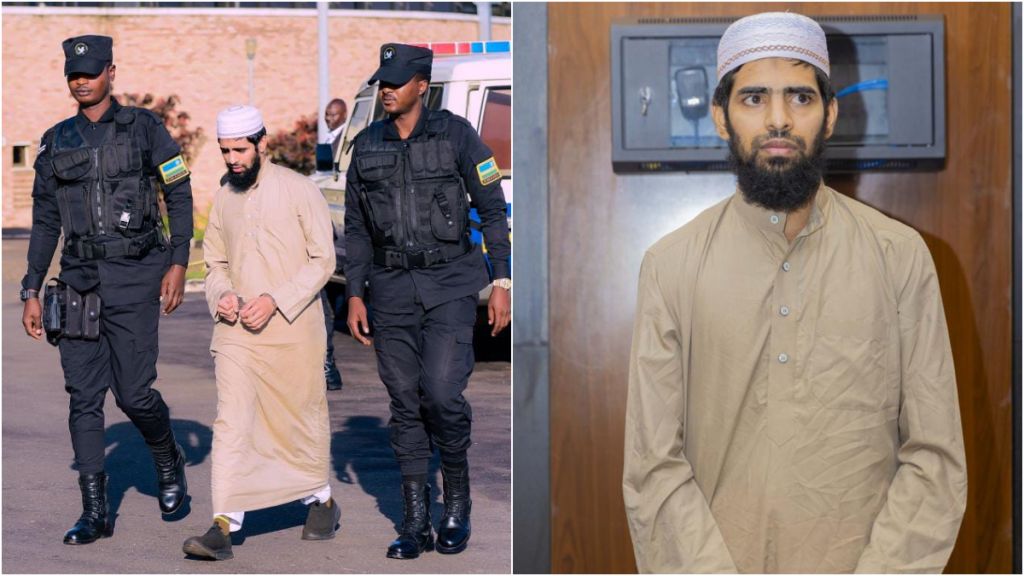
In a major development, Salman Rehman Khan, allegedly a high-ranking operative of the globally designated terrorist organization Lashkar-e-Taiba (LeT), has been extradited to India from Rwanda, East Africa. This critical operation was carried out by the Central Bureau of Investigation (CBI), in close coordination with the NIA and the INTERPOL National Central Bureau in Kigali. Khan, who was wanted by the National Investigation Agency (NIA) for his involvement in terror-related activities, was brought back to India on Thursday, by a security team from NIA.
A security team from the NIA escorted Khan back, arriving in Mumbai early in the morning on Thursday. After completing formalities at the NIA headquarters Mumbai, immediately proceeded to Bengaluru for further arrest procedures and investigation.
CBI बैंगलुरु धमाके के आरोपी सलमान रहमान खान को रवांडा से भारत डिपोर्ट कर लायी। आरोपी सलमान लश्कर ए तैयबा का आतंकी है और बैंगलुरु जेल में आतंकियों की भर्ती मामले में शामिल था ताकी आतंकी वारदात की जा सके। NIA ने सलमान समेत आठ आरोपियों के खिलाफ जनवरी 2024 में चार्जशीट भी दाखिल की… pic.twitter.com/TznS9Hmi0n
— Jitender Sharma (@capt_ivane) November 28, 2024
Khan, accused in Case No. RC28/2023/NIA/DLI, faces charges including criminal conspiracy, membership of a terrorist organization, and supporting terrorism. He is linked to an operation involving the provision of arms, ammunition, and explosives to facilitate terror activities in Bengaluru. The NIA had registered the case after an FIR was lodged at Hebbal Police Station, Bengaluru in 2023.
The NIA's request for a Red Notice against Khan was swiftly acted upon by the Central Bureau of Investigation (CBI), which liaised with INTERPOL. The Red Notice was issued on August 2, 2024, and circulated to law enforcement agencies worldwide to track down the fugitive. INTERPOL National Central Bureau (NCB) in Kigali assisted in geolocating Khan in Rwanda, where he was apprehended.
Khan's role in Lashkar-e-Taiba (LeT) was uncovered during the ongoing investigation by the NIA into the Bengaluru LeT prison radicalization case. This investigation is part of a broader probe into terror radicalization and recruitment within Bengaluru Central Prison. The NIA took over the case, RC-28/2023/NIA/DLI, from Bengaluru City Police on October 25, 2023.
The NIA's findings indicate that Khan, who was previously incarcerated for a POCSO case from 2018 to 2022, had come into contact with Naseer, a notorious figure linked to multiple blast incidents and serving a life sentence in a terrorism case, alongside the absconding Junaid Ahmed. Naseer, after assessing the potential of these individuals, managed to have Khan, Ahmed, and others moved to his barrack with the intent of radicalizing and recruiting them for LeT.
According to officials, They discovered that Naseer successfully radicalized and recruited Khan and Ahmed, who then played a significant role in supporting LeT's operations. Khan, after being radicalized during his imprisonment by Naseer, played a pivotal role in facilitating the collection and distribution of explosives for terror suspects involved in an LeT operation.
Further investigations revealed Khan’s involvement in a conspiracy to facilitate Naseer's escape from police custody during a court transfer. This was part of a larger scheme to execute a 'fidayeen' (suicide) attack while enabling Naseer’s escape. Moreover, Khan and Ahmed directed their co-conspirators to steal police caps for the planned operation and to set fire to government buses as a rehearsal for the attack. However, the plot was thwarted when arms were seized in July last year.
The case, relating radicalisation of inmates in Bengaluru Parappana Agrahara central prison, by a LeT terrorist, was originally registered by the Bengaluru city police last year following seizure of arms and ammunitions, including seven pistols, four hand grenades, one magazine and 45 live rounds along with four walkie talkies from the house of one of the accused.
After the conspiracy was uncovered, Khan fled the country and was declared a fugitive. The NIA subsequently filed charges against him under multiple sections of the Indian Penal Code (IPC), the Unlawful Activities (Prevention) Act (UAPA), the Arms Act, and the Explosive Substances Act.